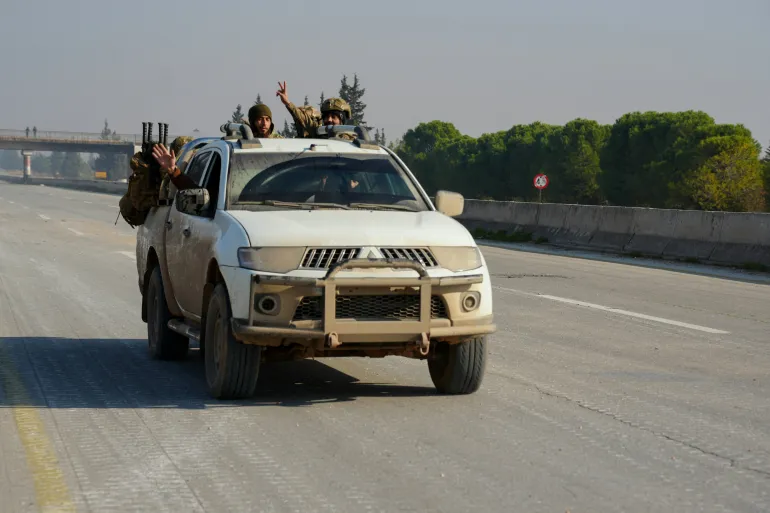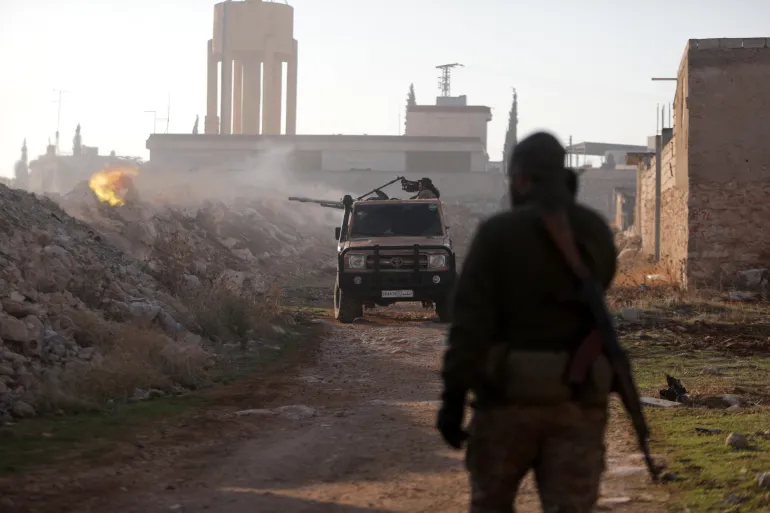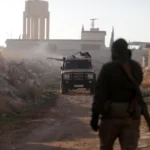At least four people have been killed in Aleppo after rebel groups launched a significant attack on the city for the first time in years, Syrian state media reported. The assault intensified as rebels increased their offensive on government-controlled areas in northwestern Syria.
On Friday, rebels conducted a ground attack on Aleppo, including two car bomb explosions, and engaged in clashes with Syrian government forces on the city’s western outskirts. The Turkish news agency Anadolu confirmed that armed groups had entered the city center, though no further details were provided.

The Syrian army countered by saying it had successfully repelled the offensive, stating, “Our forces continue to repel the major attack launched by armed terrorist groups,” and claimed to have regained control over several positions.
Earlier on Friday, four civilians, including two students, were killed in a rebel artillery attack on a building housing university students, according to state news agency SANA.
The rebel groups, led by Hay’et Tahrir al-Sham, initiated the offensive on Wednesday, capturing multiple towns and villages in the northwestern Aleppo province. This marks the heaviest fighting in the region since 2020 when government forces took back opposition-held areas. The recent violence comes after weeks of rising tensions.

Russian and Syrian airstrikes targeted rebel-held areas in northwestern Syria, particularly near the Turkish border, in an effort to push back the offensive. Opposition sources reported that more than 47 villages had been captured by the rebels, who also gained control of the M5 highway, a key logistics route. The opposition factions have managed to secure much of western Aleppo’s countryside, positioning themselves close to the city center.
According to the United Nations Office for the Coordination of Humanitarian Affairs, over 14,000 people—nearly half of whom are children—have been displaced by the ongoing violence.
Colin Clarke, senior fellow at The Soufan Center, remarked that the current violence reflects Syria’s deep divisions. He noted that while the rebel forces have made significant gains, particularly in Idlib and Aleppo, they are unlikely to push further into other parts of Syria.
The conflict in Syria began in 2011 when President Bashar al-Assad’s forces cracked down on pro-democracy protests. Over the years, it has evolved into a complex civil war with foreign powers such as Russia, Iran, and Hezbollah supporting the Assad regime.
Iranian Foreign Minister Abbas Araghchi reaffirmed his country’s support for Syria, especially in its battle against terrorism, during a call with his Syrian counterpart, Bassam al-Sabbagh.
Meanwhile, Russian spokesperson Dmitry Peskov expressed support for Syria’s government, calling the rebel advances an infringement on Syrian sovereignty, and emphasized the need for the government to restore order quickly. On reports of President Bashar al-Assad visiting Moscow for talks with President Vladimir Putin, Peskov declined to comment.
Turkey has also voiced its concern, urging an end to attacks on Syria’s Idlib rebel enclave. The Turkish foreign ministry stressed the importance of preventing further instability and civilian casualties in the region.


